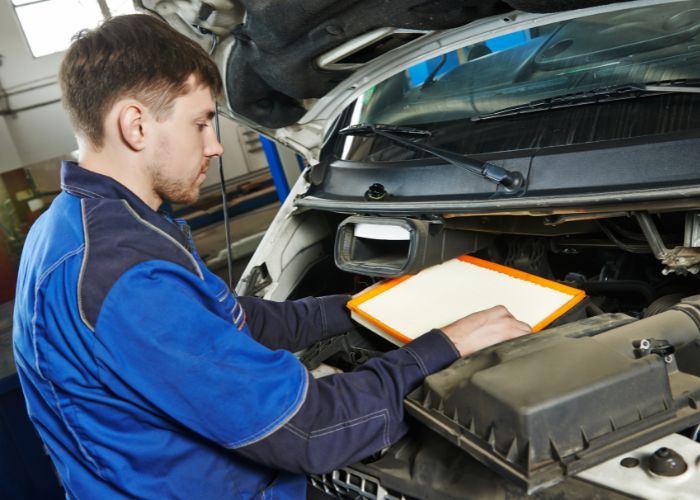Has your car become a gas guzzler bleeding your wallet dry at the pump? Below, we’ll offer some simple tips and changes every driver can make to improve their fuel economy, from their driving style to their tires.
Get New Tires
The tires are obviously crucial to a vehicle’s performance and fuel efficiency of a vehicle. If the tires on the car are old, worn, and deflated, they can reduce its fuel-efficiency potential significantly. If your car has old tires, swapping them out for a new set is a quick solution to increasing fuel efficiency.
If you want to extract as much fuel economy from your car as possible, consider low-profile versus regular tires. Low-profile tires provide a smoother and more fuel-efficient ride due to the reduced rolling resistance of the tread pattern. Many drivers choose low-profile tires for their looks or performance. However, you shouldn’t underestimate their practical fuel economy benefits!
Drive Conservatively
Perhaps the simplest change every driver can make to improve their fuel economy is to change how they drive and slow down. You don’t have to be a gearhead to understand that cars burn the most fuel when accelerating. So if you want to burn less fuel while driving, ease off the gas pedal and travel more conservatively.
Once a car reaches 50 mph and up, it burns fuel less efficiently, so don’t speed on the highway, and when accelerating, do so at a steady and even pace instead of flooring it. Old habits can die hard. But while it may take some getting used to, a month of conservative driving will yield benefits at the gas pump.
Pro-Tip: While cruise control is a good way to keep an efficient pace, avoid using it on hills. The steep incline will force the car to accelerate rapidly to keep its pace and burn a lot of fuel.
Replace Spark Plugs
If your car’s fuel economy has slowly decreased to a fraction of what it once was, it could be a mechanical problem. Regarding fuel economy problems, misfiring spark plugs are a common culprit for a loss of efficiency.
If the spark plugs on a vehicle are performing poorly, they can reduce a car’s fuel economy by as much as 30 percent! If you’ve noticed a sharp decline in your vehicle’s fuel efficiency, have the spark plugs checked or replaced.
Get a Tune-Up
If you’ve been slacking on your vehicle’s maintenance schedule, getting a tune-up and staying on the service schedule moving forward is an excellent way to boost your vehicle’s performance and fuel efficiency. The air filter, oxygen sensors, and motor oil are crucial to a car burning fuel efficiently.
The air filter and oxygen sensors help provide the car with a proper mix of air and fuel for the engine. However, if they’re dirty or clogged with debris, they can’t do their job correctly. When choosing a motor oil, you should also get one that’s high in friction reduction for a slight increase in fuel efficiency.

















